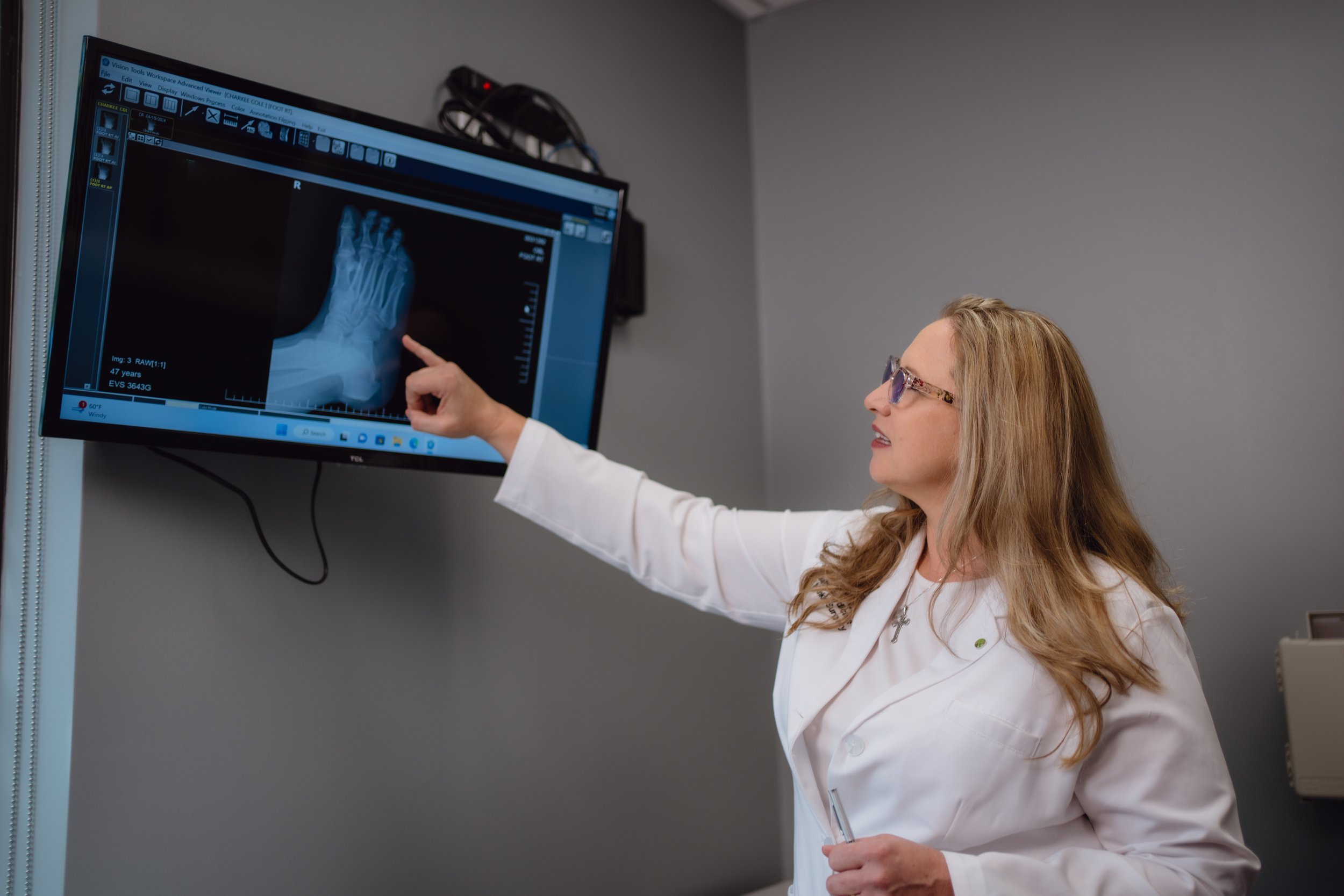
Foot and ANkle Fracture Experts in San Antonio
Foot and ankle Fracture
What is A Foot or ankle fracture?
A fracture refers to a break or injury of one or more of your bones. Fractures can range in severity and occur in both your foot and ankle due to trauma, accidents, sports injuries, or falls. Fractures in the foot and ankle can involve different bones, such as the toes (phalanges), metatarsals, ankle bones (tibia, fibula, and talus), or other smaller bones. They can range from minor hairline fractures to severe breaks that may displace bones.
The main causes for a fracture of the foot and ankle are:
Falls
Twists
Direct impact
Sports injuries
Accidents
Repetitive stress on the bones
What are the Most Common symptoms of A Foot or ankle Fracture?
Foot and ankle fractures often incur symptoms including severe pain, swelling, bruising, and tenderness around the injured area. Individuals may experience difficulty bearing weight or walking due to the pain, along with possible deformity or misalignment of the foot or ankle. Limited range of motion and sensitivity to touch are common. In severe cases, visible bone displacement or protrusion might occur. However, not all fractures exhibit visible deformities, and some might have less pronounced symptoms initially.
Seeking immediate medical attention upon experiencing these symptoms or after an injury is crucial for proper evaluation, diagnosis, and treatment to facilitate optimal healing and prevent potential complications.
Treatment Options for A Foot & ankle fracture in San Antonio:
For mild foot or ankle injuries, we recommend the RICE method:
Rest: Rest is essential to ensure proper recovery. Minimize or completely avoid putting weight on the injured foot or ankle to prevent further damage and allow the injured area to heal.
Ice: Applying ice or a cold pack to the injured area helps reduce swelling, inflammation, and pain. Cold therapy should be applied for about 15-20 minutes every few hours during the first 48 hours after the injury.
Compression: Use an elastic bandage or compression wrap around the injured foot or ankle to help reduce swelling and provide support to the injured area.
Elevation: Elevate the injured foot or ankle above the level of the heart, whenever possible, to help minimize swelling by allowing excess fluids to drain away from the injured area.
For more serious breaks and fractures, it is recommended that you immobilize the injured area through casts, splints, or walking boots to stabilize the fracture. For some fractures, reduction (manipulating bones back into place) preceding immobilization may be necessary. Severe fractures, especially those causing significant displacement, might require surgery to realign and stabilize bones using screws, plates, or rods. Once your fracture has healed, rehabilitation involving physical therapy and exercises is crucial to restore strength, flexibility, and overall function in the affected foot or ankle.
Our Most Frequently Asked Questions
Answered by Our Foot & Ankle Specialist
Q: Is my ankle sprained or Fractured?
A: This is a very common question because really bad sprains can look very similar to broken ankles. Getting an X-ray will tell us better if it's broken or not! And if it isn't broken, what kind of injury it is.
Q: How do I tell the difference between a sprain & a fracture?
A: This is a very common question because really bad sprains can look very similar to fractured ankles. Our recommendation would be to come in to get an X-ray so that one of our foot & ankle specialists can identify and diagnose properly!
Our Locations
-

Alamo Heights
Address: 423 Treeline Park, Suite 350, San Antonio, TX 78209
-

Westover Hills
Address: 11212 State Highway 151, Medical Plaza 1, 2nd Floor, Suite 200, San Antonio, TX 78251
-

Medical Center
ADDRESS: 2833 Babcock Rd, Tower 2, Suite 435, San Antonio, TX 78229
-

Boerne
ADDRESS: 138 Old San Antonio Rd, Suite 302, Boerne, TX 78006
-

Southside
8726 Poteet Jourdanton Fwy Acc Rd, San Antonio, TX 78224
-

Castroville
-

Schertz
Address: 6051 FM 3009, Suite 260, Schertz, TX 78154
Meet Our Foot & Ankle Specialists
Shumaila Sarfani, MD
Board-Certified & Fellowship-Trained Foot & Ankle Orthopedic Specialist
Kathren Mccarty, DPM
Board-Certified Podiatric Foot & Ankle Surgeon




